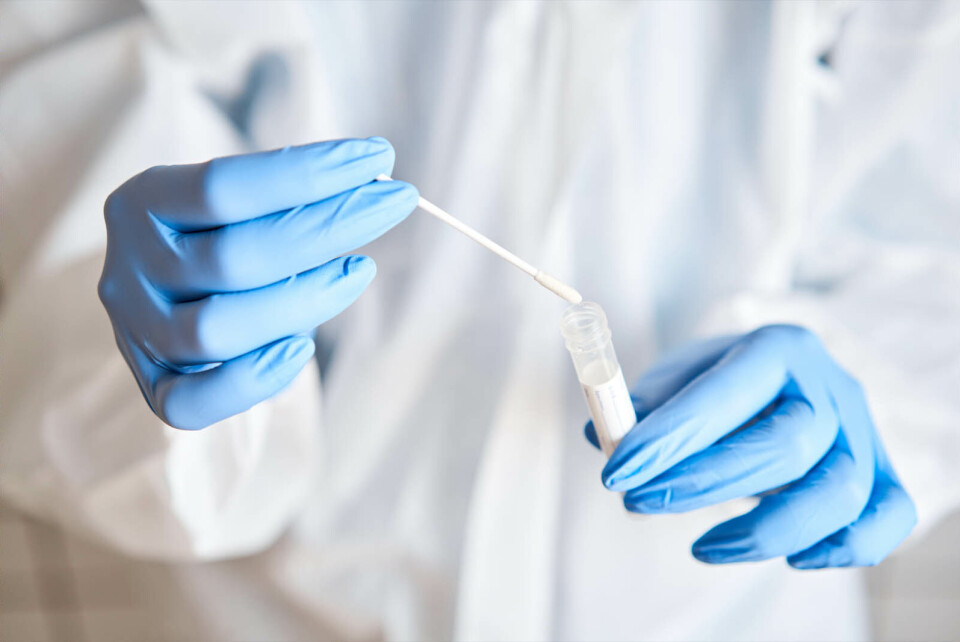-
Why facts of British couple’s deaths in south of France are slow to emerge
The investigation highlights stark differences in procedures between France, UK and US
-
Map: Are there new Michelin star restaurants near you in France?
The new Michelin Guide France 2025 awarded 78 new stars to restaurants across the country
-
What do Trump and other world leaders say about Le Pen office ban decision?
From ‘left-wing abuse of the legal system’ to ‘the rule of law’, reactions have been fierce
French Covid tests change to track virus mutations
France is changing the way it analyses positive Covid-19 tests to detect mutations in the virus, rather than for variant type

Until recently, once a positive result came in, further screening was used to identify if the variant was Alpha, Beta or Gamma, names now given by the World Health Organization (WHO) for what used to be called the UK, South African and Brazilian variants.
Screening will now look for virus mutations, of which three are of particular interest: L4532, E484K and E484Q.
The difference between a variant and a mutation is key.
All viruses develop and change, giving rise to mutations which may either weaken or strengthen them or have no consequence.
Once there is a significant number of mutations, the virus changes enough for it to be classified as a variant.
The same mutations can appear in different variants.
E484K is found in Beta and Gamma and other less common variants. L452R is present in Delta, formerly known as the Indian variant, and also in another ‘Indian’ variant, Kappa.
They are of particular interest because it is thought all three reduce immunity to the virus, and so may have an effect on vaccination and those who have already had Covid-19. L452R is also thought to be linked to a rise in rate of infection.
This means that mutations which are cause for concern could be picked up in carriers who do not have one of the existing classified variants, so the development of new types of cases can be better identified.
More extensive tests, called genomic sequencing, are carried out on a randomly chosen number of positive tests.
These look at the whole of the virus and can identify a wide range of mutations and look in detail at how it is evolving.
France has been criticised for its low rate of sequencing compared to the UK, which is seen as a pioneer in the field. By June 24, it had given sequencing information on 477,981 cases, compared to 45,452 for France, to the global data sharing platform Gisaid since January 2020.
Low sequencing rates means there is less likelihood of new variants such as Delta being spotted, because the other tests did not show it up.
However, sequencing is set to increase in France.
Until now, only public laboratories have been authorised to carry out sequencing, but private laboratories have been given the go-ahead from the end of July, funded by the Assurance Maladie at €135 per test.
President of testing labs union SDB François Blanchecotte said it is an important step forward. “The private laboratories are responsible for 80% of PCR tests, of which there are around two million a week,” he said.
“We hope to be able to sequence around 5,000 tests and match the public service labs, so there will be around 10,000 carried out a week.
“We have been campaigning for this since early this year and we would have liked to have seen it introduced much earlier but administration is slow in France.
“It will help give a much better overall picture of the development of the virus.”
In the latest figures from Santé Publique France for the week of June 14-20, there were 3,708 sequences, up 19% on the week before, but some way to go before France reaches 10,000.
Medical journal The Lancet said earlier this year that genetic sequencing techniques have undoubtedly provided valuable information on the biology and evolution of SARS-CoV-2, but their use and application globally varied, risking an insufficient response to a rapidly changing pandemic.
It said that not all positive tests needed to be sequenced, but a sufficient level to detect and track mutations and their effects should be central to health systems, both for Covid19 and for future infections.
Related stories
France strengthens its Covid-19 defences for summer tourist season
France launches website to record results of at-home Covid tests
























